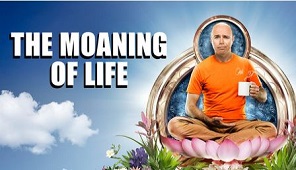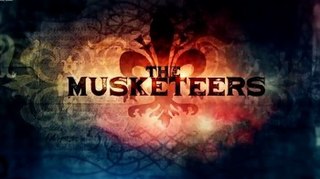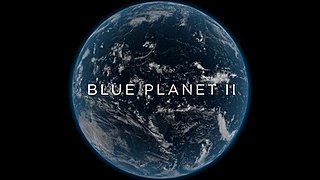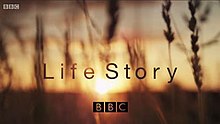
The Blue Planet is a British nature documentary series created and co-produced by the BBC and Discovery Channel. It premiered on 12 September 2001 in the United Kingdom. It is narrated by David Attenborough.
The BBC Studios Natural History Unit (NHU) is a department of BBC Studios that produces television, radio and online content with a natural history or wildlife theme. It is best known for its highly regarded nature documentaries, including The Blue Planet and Planet Earth, and has a long association with David Attenborough's authored documentaries, starting with 1979's Life on Earth.

Natural World is a strand of British wildlife documentary programmes broadcast on BBC Two and BBC Two HD and regarded by the BBC as its flagship natural history series. It is the longest-running documentary in its genre on British television, with nearly 500 episodes broadcast since its inception in 1983. Natural World programmes are typically one-off films that take an in-depth look at particular natural history events, stories or subjects from around the globe.

A nature documentary or wildlife documentary is a genre of documentary film or series about animals, plants, or other non-human living creatures, usually concentrating on video taken in their natural habitat but also often including footage of trained and captive animals. Sometimes they are about wildlife or ecosystems in relationship to human beings. Such programmes are most frequently made for television, particularly for public broadcasting channels, but some are also made for the cinema medium. The proliferation of this genre occurred almost simultaneously alongside the production of similar television series which is distributed across the world.

Planet Earth is a 2006 British television series produced by the BBC Natural History Unit. Five years in the making, it was the most expensive nature documentary series ever commissioned by the BBC and also the first to be filmed in high definition. The series received multiple awards, including four Emmy Awards, a Peabody Award, and an award from the Royal Television Society.
This is a chronological list of selected television programmes and feature films produced or co-produced by the BBC Studios Natural History Unit since its inception in 1957. It is not intended to be exhaustive given the large amount of material the Unit has produced in its history, but it does capture all the major TV series and films for which it has gained recognition. A brief synopsis of Pre 1957 radio and television programmes on a natural history theme made by the BBC is given in the History section of the main BBC Studios Natural History Unit article.

Frozen Planet is a 2011 British nature documentary series, co-produced by the BBC ZDF and The Open University. It was filmed by the BBC Natural History Unit. The production team, which includes executive producer Alastair Fothergill and series producer Vanessa Berlowitz, were previously responsible for the award-winning series The Blue Planet (2001) and Planet Earth (2006), and Frozen Planet is billed as a sequel of sorts. David Attenborough returns as narrator. It is distributed under licence by the BBC in other countries, Discovery Channel for North America, ZDF for Germany, Antena 3 for Spain and Skai TV for Greece.

Life is a British nature documentary series created and produced by the BBC in association with The Open University. It was first broadcast as part of the BBC's Darwin Season on BBC One and BBC HD from October to December 2009. The series takes a global view of the specialised strategies and extreme behaviour that living things have developed in order to survive; what Charles Darwin termed "the struggle for existence". Four years in the making, the series was shot entirely in high definition.

Nature's Great Events is a wildlife documentary series made for BBC television, first shown in the UK on BBC One and BBC HD in February 2009. The series looks at how seasonal changes powered by the sun cause shifting weather patterns and ocean currents, which in turn create the conditions for some of the planet's most spectacular wildlife events. Each episode focuses on the challenges and opportunities these changes present to a few key species.

Human Planet is an 8-part British television documentary series. It is produced by the BBC with co-production from France Televisions Discovery and BBC Worldwide. It describes the human species and its relationship with the natural world by showing the remarkable ways humans have adapted to life in every environment on Earth. The show drew attention for alleged fakery and the BBC eventually acknowledged that a number of scenes were inaccurately depicted or misleading and withdrew the series from distribution.

Mike Gunton is a British television producer and a senior executive at the BBC Natural History Unit, the world's largest production unit dedicated to wildlife film-making. In November 2009 he became the Unit's first Creative Director.
Keith Scholey is a British producer of nature documentaries for television and cinema, and a former television executive. He is the joint series producer of the Netflix original documentary series Our Planet, the joint director and executive producer of David Attenborough: A Life on Our Planet, and executive producer of Breaking Boundaries: The Science of Our Planet. He is the executive producer of the 2021 BBC / Discovery series A Perfect Planet, The Mating Game and The Earthshot Prize: Repairing Our Planet. He also co-directed African Cats, Bears, and Dolphin Reef with Alastair Fothergill for Disneynature, and is also the executive producer of the series North America for the Discovery Channel.

Africa is a 2013 British television series created by the BBC Natural History Unit. It focuses on wildlife and wild habitats in Africa, and was four years in the making. It consists of six hour-long episodes and six 10-minute-long featurettes.

The Moaning of Life is a British travel documentary comedy television series broadcast on Sky 1. It follows Karl Pilkington around the world as he visits other cultures. Unlike An Idiot Abroad, which had a similar premise, The Moaning of Life sees Pilkington actually choosing to visit other countries in order to see how they face up to some of life's biggest issues with their cultures and customs. He also reassesses his life now that he has reached the age of 40, which he considers to be "middle age". The series has eleven one-hour episodes, and sees Pilkington visiting Ghana, India, Indonesia, Japan, Mexico, the Philippines, South Africa, Taiwan, and the United States. Its original broadcast run in the United Kingdom began on 20 October 2013.

The Musketeers is a British period action-drama program based on the characters from Alexandre Dumas's 1844 novel The Three Musketeers and co-produced by BBC America and BBC Worldwide. The series follows the musketeers Athos, Aramis, and Porthos as they serve King Louis XIII and citizens of 17th-century Paris. The first episode was shown on BBC One on 19 January 2014. It stars Tom Burke as Athos, Santiago Cabrera as Aramis, Howard Charles as Porthos, Luke Pasqualino as D'Artagnan, Tamla Kari as Constance Bonacieux, Maimie McCoy as Milady de Winter, Ryan Gage as Louis XIII and Alexandra Dowling as Queen Anne. It also features Peter Capaldi as Cardinal Richelieu in Series One, Marc Warren as Comte de Rochefort in Series Two, and Rupert Everett as the Marquis de Feron in Series Three.

Hidden Kingdoms is a British documentary television series that was first broadcast on BBC One on 16 January 2014. The three-part series is narrated by Stephen Fry and shows how animals experience the world from their perspective. Animals shown include a chipmunk, dung beetle, Rufous elephant shrew and treeshrew, and Japanese rhinoceros beetle.

The Hunt is a 2015 British nature documentary series made for BBC Television, first shown in the UK on BBC One and BBC One HD on 1 November 2015. The series is narrated by David Attenborough.

Planet Earth II is a 2016 British nature documentary series produced by the BBC as a sequel to Planet Earth, which was broadcast in 2006. The series is presented and narrated by Sir David Attenborough with the main theme music composed by Hans Zimmer.

Blue Planet II is a 2017 British nature documentary series on marine life produced by the BBC Natural History Unit. Like its predecessor, The Blue Planet (2001), it is narrated and presented by naturalist Sir David Attenborough.
Dynasties is a 2018 British nature documentary series on five vulnerable or endangered species known to form enduring populations: chimpanzee, emperor penguin, lion, tiger and African wild dog. The series is produced by the BBC Natural History Unit and narrated by David Attenborough. The music score was composed by Benji Merrison. Each episode ends with Dynasties On Location, a behind the scenes look at the planning of each episode, which could be years in advance before production crew even started filming.















